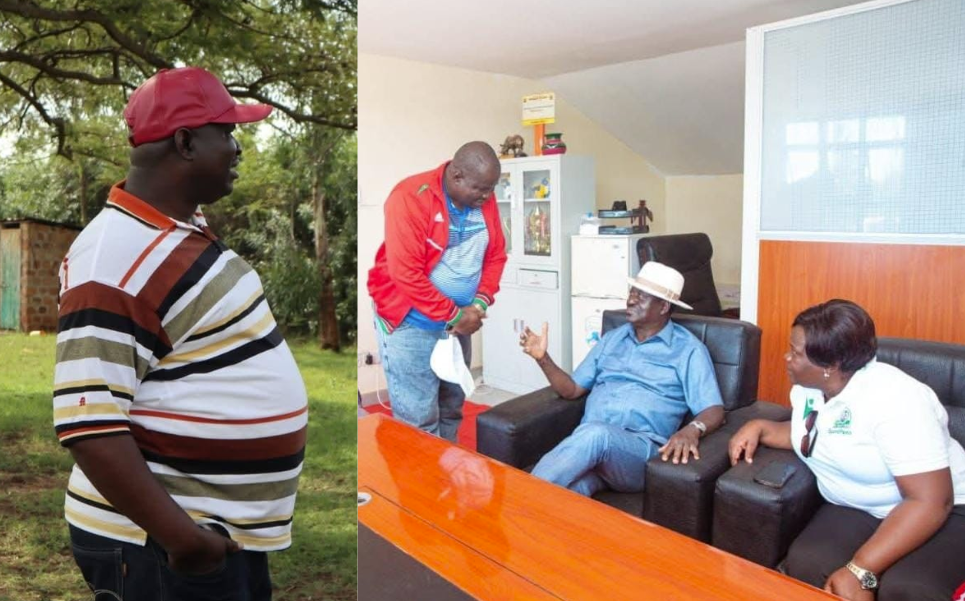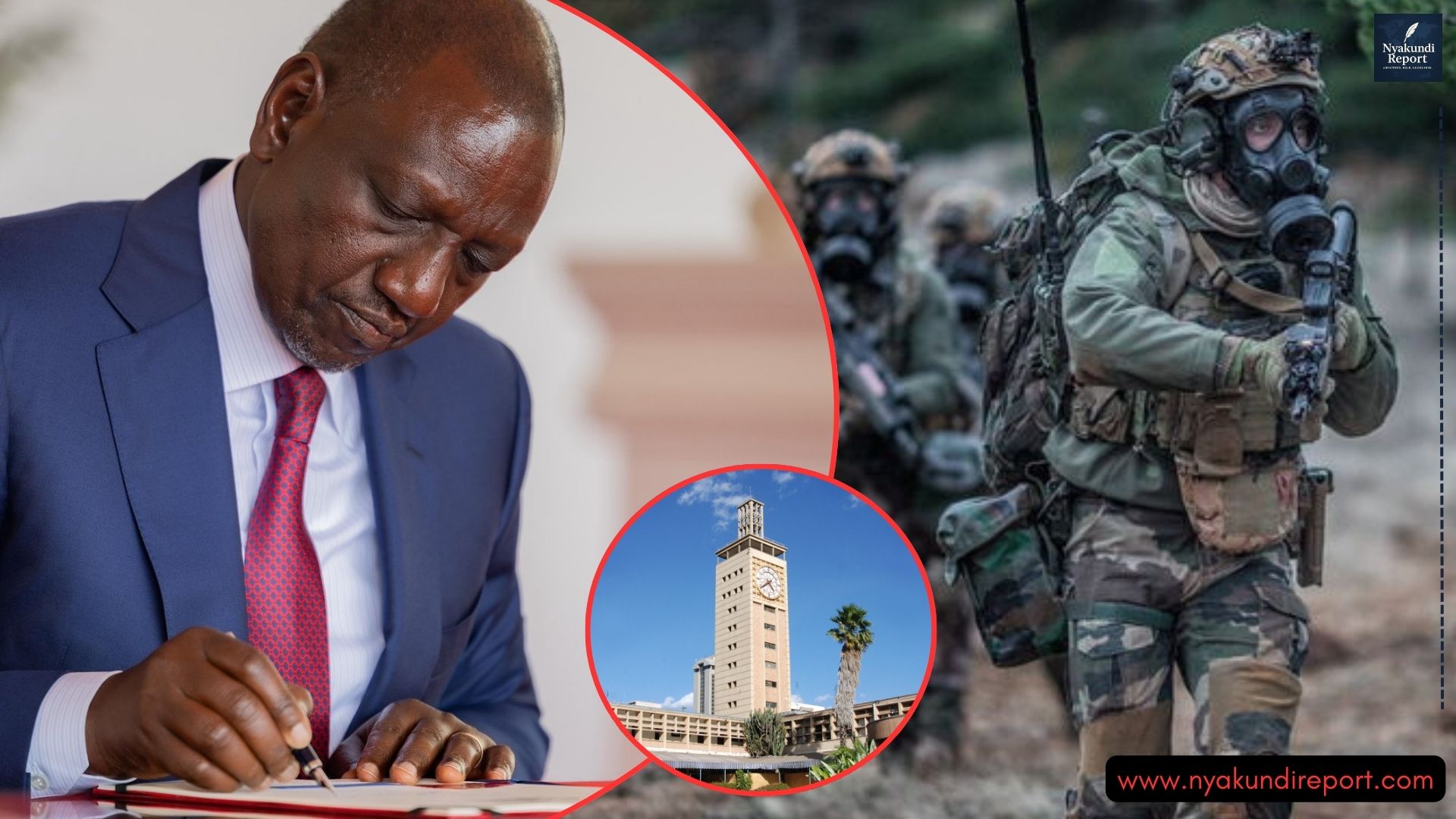For months, public debate across Homa Bay County has been consumed by allegations of corruption and nepotism that stretch across the leadership hierarchy, from the governor’s office to the county assembly itself.
The county’s political atmosphere has degenerated into a theatre of self-interest and family patronage, where the notion of service has been supplanted by clan loyalty and private ambition.
What began as whispers about the governor’s office is now squarely centred on the County Assembly, where Majority Leader Richard Ogindo has emerged as the embodiment of entrenched favouritism, family privilege, and misuse of public office.

The political establishment, once regarded as the county’s moral compass and a safeguard against executive excess, has gradually transformed into an enclave of personal networks and family influence, and at the heart of that transformation stands Ogindo, a man whose name now surfaces every time residents speak about relatives occupying government jobs without merit or qualification.
The Roots of a Broken System
The story of nepotism in Homa Bay has often been told as one that began at the top but its survival and expansion depend on the cooperation of powerful insiders like Ogindo, whose influence within the assembly is said to have created a smaller yet equally toxic ecosystem of favouritism.
Over the past year, the Majority Leader has quietly positioned his relatives, in-laws, and clan members across crucial departments of the county administration, constructing a web of power that functions less like a legislative network and more like a private enterprise disguised as governance.
What was meant to be the people’s assembly has been reshaped into a family-controlled organ serving private loyalties rather than public duty.
The leadership crisis in Homa Bay cannot be understood without acknowledging the environment that gave rise to it. Governor Gladys Wanga’s administration, once heralded as a triumph of reformist optimism and gender progress, has been steadily consumed by claims of favouritism and misuse of public resources.
From the earliest days of her tenure, her leadership was characterised by reports of irregular hiring, payroll manipulation, and financial mismanagement.
A report by the County Public Service Board revealed that hundreds of people had been irregularly added to or removed from the payroll, a manipulation that drained billions of shillings through ghost workers.
During the same period, senior officials were seen presiding over lavish events such as a thirty-million-shilling homecoming ceremony, even as contractors, health workers, and county employees went unpaid for months.
It is within this decayed political landscape that the figure of Richard Ogindo emerges, not as a reformer intent on cleansing the assembly of the executive’s excesses, but as one of the architects of its replication within the legislative chamber.
As Majority Leader of the County Assembly, Ogindo has become the central figure in what residents now call the “second wave” of nepotism, where public office has been reduced to a family enterprise and oversight has been replaced with collusion.
While public outrage once centred on the governor’s alleged misuse of power, attention has now shifted to the assembly, where Ogindo’s influence stretches far beyond the floor of debate, reaching deep into the bureaucratic machinery of the county government itself.
A Family Enterprise in Public Office
In Ndhiwa Sub-County Hospital, the administrator is none other than Ogindo’s second wife, Effie Oteng, whose control over administrative operations has reportedly given her access to sensitive personnel and procurement decisions.
Her presence there, defended by a few of Ogindo’s allies as legitimate, has provoked outrage among medical staff who question both the fairness and transparency of her appointment.
Her brother, Oteng de Teng, has also been placed in the county’s legal department, a move that has reinforced the impression of a household that has turned public employment into an inheritance scheme.
Ogindo’s brother, Sam Kogindo, who holds a degree in community development rather than any qualification in pharmacy, has been posted as the pharmacist in charge of Suba South Sub-County Hospital, a placement that health workers describe as a direct affront to professional competence.
Sam’s wife, Lavender, serves as a senior officer within the county enforcement unit, a department infamous for its dealings with traders and daily revenue collection.
Another of Ogindo’s brothers, known locally as Lawy Nera, also occupies a senior position within the county administration, while a growing list of nieces, nephews, and other relatives are said to have found their way into various government offices through his patronage.
This network, sprawling across several departments, has effectively created what insiders describe as a “shadow structure” of governance within the county. The Majority Leader’s reach now extends beyond the assembly chamber, influencing employment decisions, procurement processes, and administrative operations.
What makes this situation particularly alarming is not merely the number of relatives in public employment, but the audacity with which these appointments have been made in full view of a frustrated public.
In a county already tainted by allegations of corruption, such actions have provoked widespread indignation but the County Assembly remains silent, largely because those who might challenge Ogindo’s behaviour are either indebted to him politically or personally.
The result is an atmosphere of quiet compliance, where merit is irrelevant, and loyalty to the Ogindo family determines survival within the county government.
The transformation of the County Assembly under Ogindo’s leadership marks the collapse of the institution’s intended purpose.
Designed to hold the executive to account, it has instead become an accomplice, mirroring the excesses of the administration it is meant to oversee.
By aligning his interests with those of Governor Wanga’s office, Ogindo has turned legislative authority into a shield for corruption, using his influence to protect allies and silence critics.
County budgets are passed with little debate, appointments are endorsed without scrutiny, and any hint of opposition is quickly extinguished under the weight of partisan conformity.
Public Trust in Decline
Residents who once placed their faith in devolution as a vehicle for fairness and accountability now watch in despair as their taxes sustain a political elite that treats public office as family property.
Hospitals are run by underqualified personnel, tenders are manipulated to reward cronies, and public services crumble under the burden of incompetence.
What makes this situation particularly tragic is that it persists in plain sight, a collective betrayal carried out not in secrecy but with open arrogance by those convinced they are untouchable.
Many observers now argue that the moral decay witnessed in Homa Bay is the product of a culture of entitlement flowing from the very top. Governor Wanga’s tolerance for unprocedural appointments and her reliance on personal loyalty have emboldened senior officials such as Ogindo to replicate the same conduct in their domains.
His empire of relatives is thus not an isolated phenomenon but an extension of a broader political disorder that has taken root across the county’s leadership.
Each tier of authority mirrors the other.
The governor’s office is projecting nepotism from the top and the assembly is institutionalizing it from within.
The consequences have gone far beyond administrative inefficiency.
The very promise of devolution, meant to decentralize power and improve local service delivery, has been weaponized to serve an elite political circle.
Oversight mechanisms have collapsed, public confidence has withered, and residents have grown cynical about the prospect of reform in a county where corruption has become a way of life.
In the final analysis, Majority Leader Richard Ogindo’s dominance within the County Assembly represents more than the moral failure of a single leader but reveals the complete surrender of a governance structure that has abandoned its conscience.
The assembly that once symbolized local empowerment now operates as a family estate under his influence.
The county government, drained by ghost workers, unqualified appointees, and misappropriated funds, continues to exist in form but not in function.
Homa Bay’s tragedy lies in the ease with which its leaders have converted public trust into private wealth.
Governor Wanga may have opened the door through questionable decisions and indulgent governance but it is Ogindo who has marched through it with ruthless determination, turning public office into a personal inheritance.
Until that chain of complicity is broken, until leadership ceases to be a family business and power is reclaimed by the people, the county will remain trapped in a cycle of betrayal, where devolution’s promise of self-governance is little more than an illusion recited in official speeches and betrayed in everyday life.





































